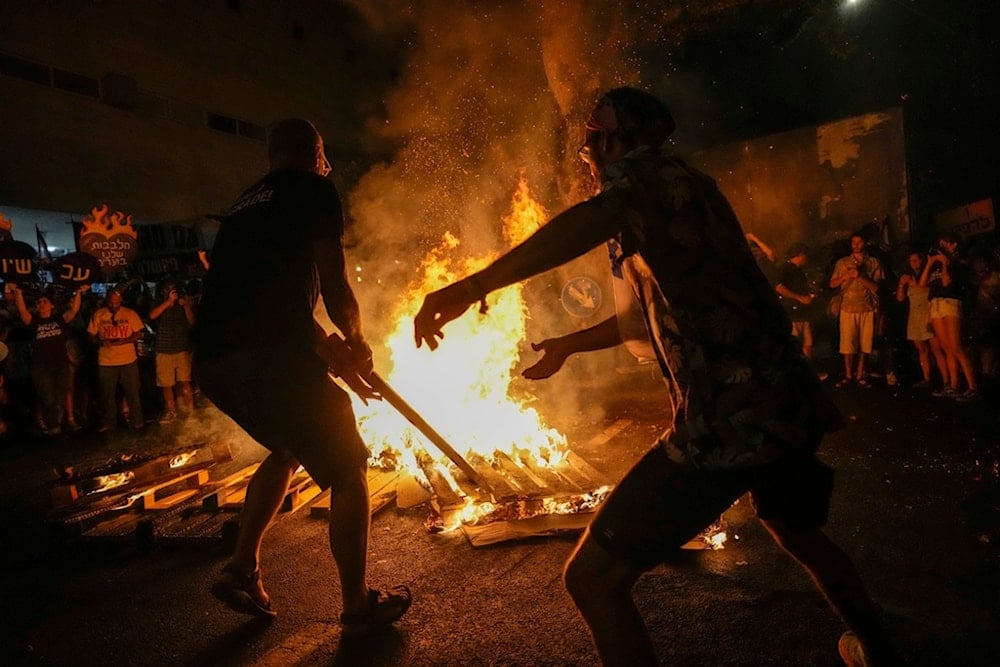Protesters against Netanyahu demand exchange deal, early elections
Protesters demanding a prisoner exchange deal broke through barriers around Netanyahu's residence in Caesarea, coinciding with his press conference.
-

Demonstrators light a bonfire during a protest demanding a cease-fire deal following the deaths of six captives in the Palestinian territory, in Tel Aviv, occupied Palestine, on Monday, September 2, 2024. (AP)
Tensions continue to escalate in occupied al-Quds and Tel Aviv as large-scale protests erupt against Israeli Prime Minister Benjamin Netanyahu.
Demonstrators are demanding a prisoner exchange deal with the Palestinian Resistance and calling for early elections, reflecting growing public dissatisfaction with the current leadership.
In occupied al-Quds, Al Mayadeen's correspondent reported ongoing clashes between protesters and Israeli police.
Protesters demanding a prisoner exchange deal broke through barriers around Netanyahu's residence in Caesarea, coinciding with his press conference.
Another big protest today is held in Caesarea, where PM Netanyahu lives pic.twitter.com/Wi5DgzQQUr
— Guy Elster (@guyelster) September 2, 2024
The protesters are calling for action in response to the recent discovery of six Israeli captives' bodies in Gaza, who were held by Hamas.
Meanwhile, in Tel Aviv, thousands have taken to the streets for the second consecutive night, expressing outrage over the regime's poor handling of the captives' situation and calling for an immediate deal.
Many protesters hold Netanyahu responsible for the deaths of the six captives, arguing that their lives could have been saved if a deal had been pursued earlier.
Read more: 'The Bloody Document': How Netanyahu's tactics killed Israeli captives
Antoine Shalhat, an expert on Israeli affairs, told Al Mayadeen that "Israel" is at a significant turning point.
He noted that the failure to secure the release of captives through military pressure and the recent actions of the Histadrut, "Israel's" main labor union, in calling for strikes and demonstrations, have intensified public pressure on Netanyahu.
Nasser Lahham, head of Al Mayadeen's office in occupied Palestine, described the current wave of protests as "more of an insurrection than a strike," noting that despite potential legal actions to halt the strikes, the momentum of street protests appears unstoppable.

 2 Min Read
2 Min Read










